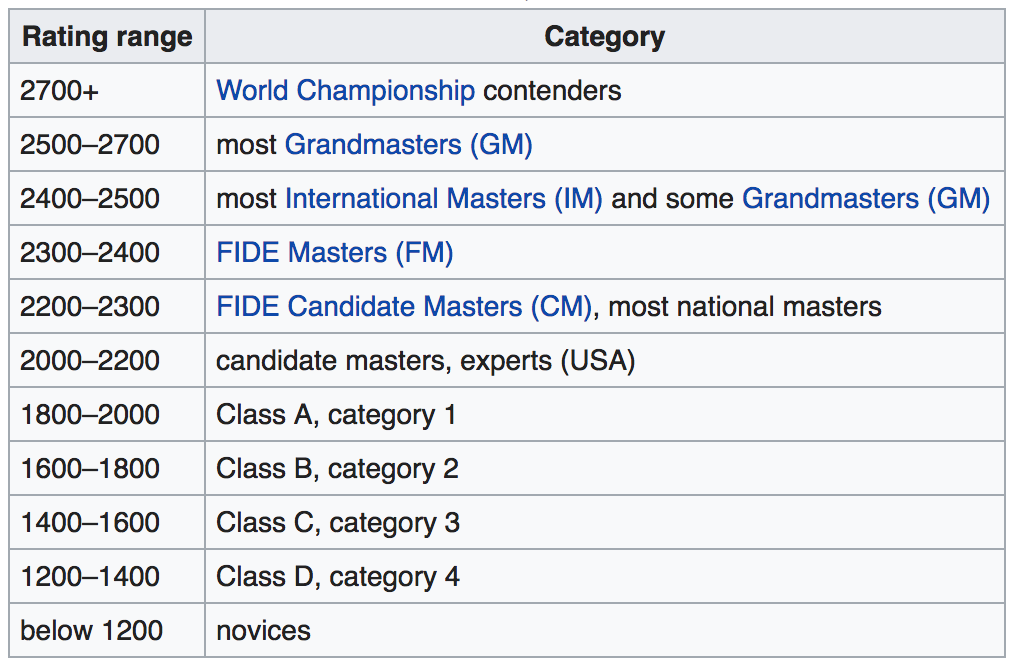This post is part of Month to Master, a 12-month accelerated learning project. For October, my goal is to defeat world champion Magnus Carlsen at a game of chess.
Yesterday, to test my current chess abilities, I played a few games against the Play Magnus app at different age levels (from Age 7 to Age 9).
While these games gave me a rough sense of my starting point, they don?t give me a clear, quantitative way to track my day-over-day progress. Thus, today, I decided to try and compute my numeric chess rating.
As I mentioned yesterday, chess players are given numeric ratings based on their performance against other players. The idea is that, given two players with known ratings, the outcome of a match should be probabilistically predictable.
For example, using the most popular rating system, called Elo, a player whose rating is 100 points greater than their opponent?s is expected to win 64% of their matches. If the difference is 200 points, then the stronger player is expected to win 76% of matches.
With each win or loss in a match, a player?s rating is updated, based on the following (semi-arbitrary, but agreed upon) Elo equation:
 Rnew and Rold are the player?s new and old rating respectively, Di is the opponent?s rating minus the player?s rating, W is the number of wins, L is the number of losses, C = 200 and K = 32.
Rnew and Rold are the player?s new and old rating respectively, Di is the opponent?s rating minus the player?s rating, W is the number of wins, L is the number of losses, C = 200 and K = 32.
More interestingly, here?s how particular ratings correspond to categories of players (according to Wikipedia). Notably, a grandmaster has a rating around 2500 and a novice is below 1200.

Additionally, according to the United States Chess Federation, a beginner is usually around 800, a mid-level player is around 1600, and a professional, around 2400.
Magnus is currently rated at 2826, and has achieved the highest rating ever at 2882 in May 2014.
My current rating is somewhere around 1100, putting me squarely in the novice category. To determine this rating, I played a number of games today on Chess.com, which maintains and computes ratings for all the players on the site.
Chess.com is actually really cool: At the click of a button, you are instantly matched with another chess player of similar skill level from anywhere in the world.
Chess.com doesn?t use the Elo rating system, but, according to the forums, my Chess.com rating should be roughly equal to my Elo rating. In other words, I?m definitely an amateur.
So, over the next month, I just need to figure out how to boost my rating from 1100 to 2700?2800.
I?m still not sure exactly how to do this, or if it?s even possible (I?m almost certain no one has even made this kind of jump even in the span of five years), but I?m going to give it my best shot.
The good news about starting in amateur territory is there?s really only one direction to go?
Read the next post. Read the previous post.

